
PÄDAGOGISCHE HOCHSCHULE WEINGARTEN
The University of Education Weingarten is a state university in Baden-Württemberg, Germany. It offers, as a main focus, undergraduate and graduate teacher education programs. It also provides Bachelor of Arts and Master of Arts programs in various other fields of education. The University of Education Weingarten has already successfully participated in numerous projects funded by the EU. Applied research projects relevant to teacher training areas are part of its core research activities. In the winter semester 2018/19 over 3.500 persons studied at the University of Education Weingarten. The University of Education Weingarten maintains close ties with universities throughout the world. It currently has 56 partnerships in 33 countries that facilitate the exchange of students and instructors as well as research collaborations.

Prof. Dr. Katja Kansteiner has been a professor of educational science, teaching research and school development since 2009. Her scientific work focusses on professional development of teachers and school leaders, on gender studies and on inclusive and diversity oriented education in schools and universities. In her first profession Katja Kansteiner was a primary and secondary I teacher. She also conducts in-service trainings for teachers, school leaders and school authorities. She is well experienced to bring out and contribute to scientific and practical oriented conferences as much as publications. Furthermore, she runs the international Master’s program of School Development and the CAS Leadership Development and is member of the board of the Master’s program of International Teaching. She is coordinator of the ERASMUS+ project HeadsUp (http://www.headsup-plc.eu/) that has developed successfully professional learning communities of school leaders. She also cooperates successfully with European partners in the ERASMUS+ projects LADECI which brings out a teacher training on language acquisition and education for democratic citizenship and (R)Equal, which provides tools etc. for integrating refugee teachers into the school systems. She is member of the Research Centre for Innovation in Education and Professional Development (http://zebip.ph-weingarten.de/das-zentrum/).
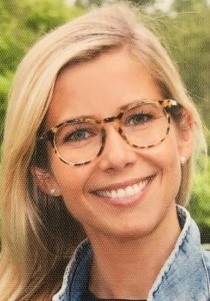
Susanne Schmid is a secondary 1 teacher with a lot of experience in teacher cooperation while building up an integrative school. She has practiced teacher cooperation in the sense of PLCs. Since 2019 she works at the University of Education Weingarten in a large project doing research and development on successful teaching in heterogeneous classes (https://www.ph-weingarten.de/forschung-an-der-ph/fun-kolleg-heterogenitaet/). In her dissertation she focusses the cooperative practice of primary school teachers in the federal state of Baden-Württemberg.

EUROPEAN UNIVERSITY CYPRUS
European University Cyprus (EUC) was founded in 2007 and developed out of Cyprus College, which was established in 1961. Today, EUC operates five Schools, namely, the School of Humanities, Social and Education Sciences, the School of Business Administration, the School of Sciences, the Medical School, and the School of Law, with the mission to educate students for successful careers and life achievement, to understand and serve the needs of society, and to create knowledge through research and innovation. Traditionally a teaching intensive higher education institution, European University Cyprus has nonetheless produced excellent research work and is already one of the leading academic institutions on the island. EUC has participated in more than 150 projects funded by a number of programs and organizations such as the Horizon2020, Erasmus+, 7th Framework Program, Lifelong Learning Programme 2007-2013, Directorates General of the European Commission, the Cyprus Research Promotion Foundation, United Nations, and governmental bodies. In the last 3 years, the University has accumulated approximately 2.5M euros in research funding, while it ranks third among the Cypriot universities in terms of total funding from Horizon2020 (first among private universities). Furthermore, EUC is the most highly ranked university in Cyprus in citation rate according to U-Multirank (117th out of 722 in Europe; top 16%). The University has been awarded the “HR Excellence in Research” logo by the European Commission, which identifies institutions and organizations at the European level as providers and supporters of a stimulating and favourable working environment. Research activity is primarily carried out by a number of research centers, laboratories, and other kinds of specialized settings such as clinics and innovation centers (http://euc.ac.cy/en/research/research-centers).
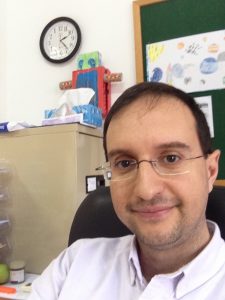
Loucas Louca is an Associate Professor of Science Education and the Director of Inquiry in Science and Math Education Research Group, Department of Education Sciences at the European University Cyprus. He is experienced in supporting teacher’s professional development in science education. He has broad expertise in cooperating in EU projects. His research interests focus on student abilities for inquiry in STEM, on teachersʼ instructional strategies for promoting student inquiry in STEM, and teachers’ responsiveness to student abilities in scientific inquiry. He has been involved in several nationally funded projects and European funded projects, focusing on student thinking in science, teacher professional development, modeling-based learning in science, development of curriculum materials, promoting opportunities for gender balance in science education and promoting inquiry-based teaching and learning in STEM education. He is interested in the use of authentic videotaped lessons as tools for teachersʼ pre-service and in-service professional development.
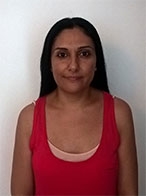
Chrystalla Papademetri-Kachrimani is an Assistant Professor in Early Childhood Education and Early Childhood Mathematics Education at the European University Cyprus. She holds a PhD and Ma in the area of Mathematics Education, (University of London) and a B.Ed in Early Childhood Education (University of Cyprus). She is the Coordinator of the undergraduate programme in Early Childhood Education at the European University and for several years was also the Coordinator of the postgraduate programme of MA in Early Childhood Education. She is the director of the ECE Lab. She is one of the founders of OMEP (World Organization of Early Childhood Education)-Cyprus Committee and has been the chair of this Committee from 2011-2015. She was part of the Scientific Committee that developed the National Curriculum for Early Childhood Education that was announced by the Cyprus Ministry of Education and Culture in 2011 and raised the philosophical foundations of the New Curriculum that was announced in 2016. Her current teaching and research interests include the re identification of approaches of creative learning and play with emphasis in mathematics in early childhood education and issues of differentiation. She was the coordinator of the 3 year (2011-2014) research project PLEGMA (‘Net”) (Cyprus Research Promotion Foundation) the aim of which was to develop a scientifically justified math and science curriculum for early childhood education.

Theopisti Skoulia is a PhD researcher in Science Education. She holds MA in Science Education (University of Cyprus), B.Ed in Primary Education (European University Cyprus) and BA in Philosophy and Education with a specialization in Education (Aristotle University of Thessaloniki). Mrs Skoulia has worked in a number of European funded research projects, as well as nationally funded projects related to Science Education, focusing on student thinking in science, teacher professional development, development of curriculum materials, promoting opportunities for gender balance in science education, and promoting inquiry-based teaching and learning in science education. Her research interests focus on in-service and pre-service teachers’ abilities for developing, adapting and implementing inquiry-based lessons in elementary science education, on teachers’ instructional strategies for promoting student inquiry in science, teacherʼs responsiveness for student abilities for scientific inquiry, and teacherʼs (pre- and in-service) Pedagogical Content Knowledge. She has long experience in teaching in primary schools.
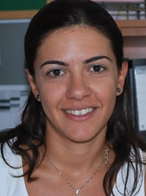
Marianna Efstathiadou has a BA in Early Childhood Education and a MA in Curriculum & Instruction – Early Childhood Education. She Call 2019 Round 1 KA2 – Cooperation for innovation and the exchange of good practices worked as a Kindergarten teacher in the United States and in Cyprus. She works at European University Cyprus as a Special Teaching Personnel (Instructor), at the School of Education Sciences, European University Cyprus. She is the Coordinator of the School Teaching Practice of Early Childhood Education. Her research interests are school teaching practices in Early Childhood Education, teacher education, professional development teacher planning in relation to all domains of early childhood, what she presents at international conferences.
UNIVERSITY OF MALAGA
The University of Malaga (UMA) is one of Spain’s premiere institutions of higher learning (world ranking: 736) [2016]. Since its foundation back in 1972, UMA has rapidly expanded its international presence and prestige. Faculty of Education is committed to an inclusive approach to schooling, and extensive research has been performed in this area. In addition, the Faculty is engaged in researching and developing teaching strategies in prospective teachers to reduce the rate of early school leaving. One of the new roles school leaders are being asked to play is to work beyond their school borders to contribute to the success of the system as a whole. Effective education leadership makes a difference in improving learning, reducing early school leavers and in implementing the right to education

Carmen Sanchidrián is Professor of Theory and History of Education at the University of Málaga. She holds a Master’s degree and a Ph.D. in Philosophy and Science of Education (both from the Complutense University, Madrid). Her current research interests focus on teachers’ training/education and on new ways of teaching, learning and presenting changes and continuities in the European development of Education. She has been involved in several research projects about materialities of schooling as historical source and subject, State control of education and Education and democracy. She has published numerous papers and articles in these fields of study.
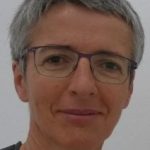
Elvira Barrios is an Assistant Professor of English as a Foreign Language teaching at the University of Málaga. She holds a Master’s Degree in Teaching English as a Foreign Language from the University of Reading (UK) and a Ph.D. in English from the University of Granada (Spain). Her current research interest includes teachers’ and learners’ perceptions and conceptions about language learning, CLIL and reflective teaching and learning in teacher education. She teaches workshops in differentiated instruction aimed at in-service teachers organised by the Andalusian network of teachers’ centres.

PAEDAGOGISCHE HOCHSCHULE VORARLBERG
The University College of Teacher Education Vorarlberg (PHV) is a public institution. It is built upon the tradition of three former pedagogical academies and in-service institutions which were in place from the late 1960s up until 2007. Apart from providing the initial education of the future generation of teachers in Vorarlberg and the continuous and further in-service training of all active members of the teaching profession, we also try to enable acting teachers to acquire a higher academic degree through the Master’s degree programmes on offer. It is a place of teaching, learning and research for the educational sector. At the PHV teachers are trained for primary, lower secondary and special needs schools. The University College was inaugurated in 2007. On average there are about 500 students in pre-service, about 3500 teachers in in-service or further training each year. Approximately 100 teachers are employed at the PHV

Prof. Dr. Peter Theurl is Head of Department at the University of Teacher Education and member of a nationwide research group who works in the field of curriculum evaluation and improvement of teacher studies. He has published numerous articles on professional learning communities and is busy in projects of school development in Vorarlberg and is working in this field since many years. He has established the curriculum for principals training at his University and is recently head of a group of researchers who is developing field studies for teacher students.
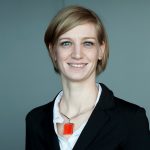
Prof. Dr. Eva Frick, BEd is professor for early childhood education and primary level education at the college of education in Vorarlberg, Austria. Her research interests lie in the fields of professionalization of elementary school teachers, school development, quality of interaction between pedagogical staff and children, transition from elementary to primary school and early language acquisition.

NORGES TEKNISK-NATURVITENSKAPELIGE UNIVERSITET
The Norwegian University of Science and Technology (NTNU) is the largest of the eight universities in Norway, with 14 faculties and 70 departments and divisions and approximately 39 000 students. Department for Teachers Education is the largest teacher educaiotn in Norway, and educates 750 graduate student teachers per year (year 1 – year 13) , as well as further education and in-service courses for teachers, several master programs and one ph.d. program. It also host the national principal training program.
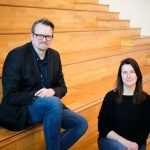
Anne Berit Emstad is an innovation manager at the Department of Teacher Education, The Norwegian University of Science and Technology. Her responsibility is to realize more of the innovation potential in research and research collaboration. Her research interests are school management and leadership, professional learning communities, school evaluation, newly educated teachers and teacher education. E-mail: anne.emstad@ntnu.no
Morten K. Strand is a principal at a primary school in Trondheim, and he also works as an assistant professor at The Norwegian University of Science and Technology, The Department of Teacher Education. At the university he teaches and researches in the field of school management and leadership, with a particular focus on professional learning communities with school leaders. E-mail: morten.k.strand@ntnu.no
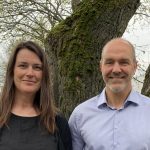
Bård Knutsen is an associate professor of biology didactics at the Department of Teacher Education, The Norwegian University of Science and Technology. He has worked in primary school for 13 years, both as a science teacher and principal. For the last 14 years he has worked as a lecturer and researcher at NTNU. His interests and research areas are education for sustainable development, the use of alternative learning arenas and adapted education for gifted students, out school schooling, and professional learning communities. Bard.knutsen@ntnu.no
ΤHE MUNICIPALITY OF LINKÖPING
Linköping municipality with its 150 000 inhabitants is the fifth largest municipality in Sweden and responsible for the schools in Linköping. Within the municipality Children and Youth Committee has primary responsibility for school activities at the primary level, while the Education Committee has primary responsibility for the organization of secondary and adult education in Linköping. Highest responsible is Director of department of education and two Directors of education one responsible for the high school and one responsible for lower education.
There are around 6000 employes in the department of education divided into 140 preschools with 60 heads and deputy heads, 56 elementary to secondary schools with around 150 heads and deputy heads.
The Municipality of Linköping is continuously working to develop schools in different areas and are far ahead in areas like; digitization in schools, integration of newly arrived, training schools together with University of Linköping, and collegial learning with heads and teachers.

Patrik Landström is Director of Education in the municipality of Linköping and responsible for approximately 12-13 school leaders. Since 2014 they have organized and supported PLC-groups of heads (school leaders). Patrik Landstrom is also well experienced in contributing as partner to ERASMUS+projects. He is a further teacher and school leader and cooperates well with the University of Linkoping, department of education. He is working to develop school close together with heads and their teachers #for every child/student: meeting three times a year, setting goals and following up. In between the meetings he is also working at the schools with the heads. His heads are working with their school development plans in their PLCs. Heads and teachers of The Municipality of Linköping have been working with collegial learning as a tool for school development for some years and right now around 60 heads and 300 teachers are working in PPLC and PTLC groups.
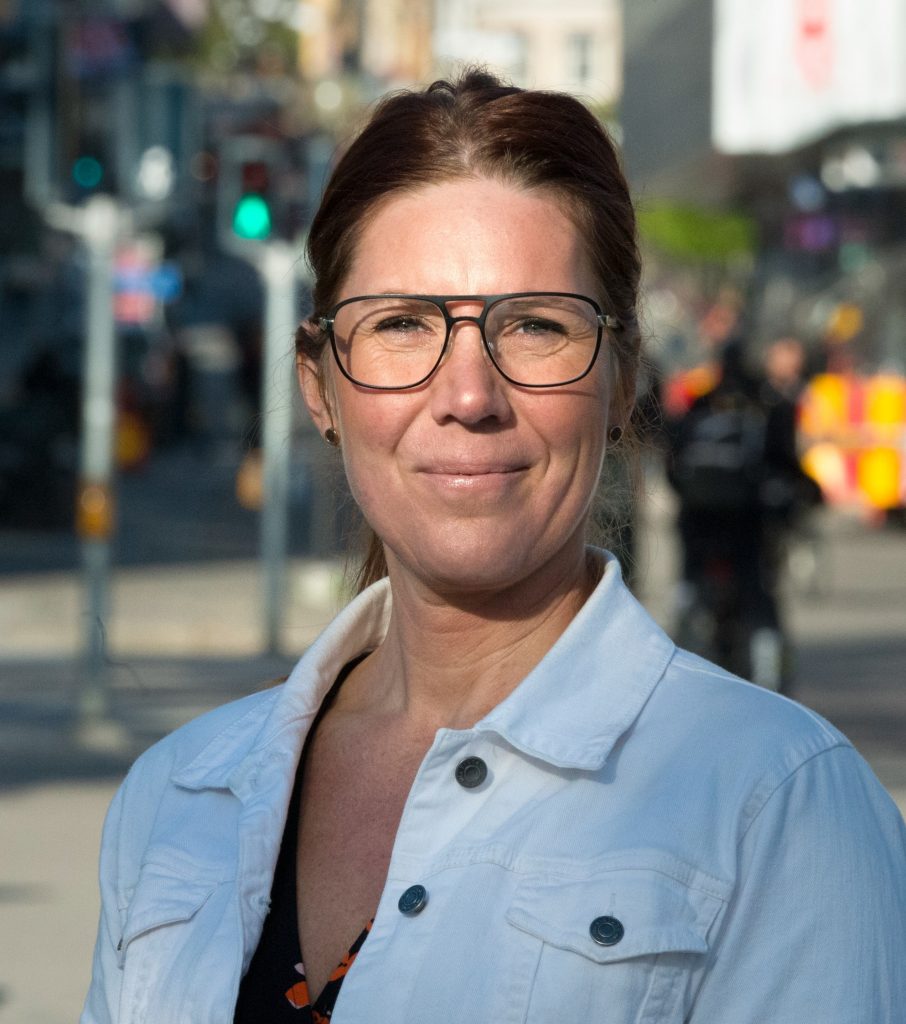
Lina Rahm is Director of Education in the municipality of Linköping and responsible for 19 school leaders. In this group of school leaders, as well as in Patrik Landströms group, there are organized PLC-groups. Besides organizing and coaching the heads in their strategic work with schooldevelopment #foreverychild/student Lina Rahm is with Patrik Landstrom a contributing partner with the University of Linkoping, department of education


